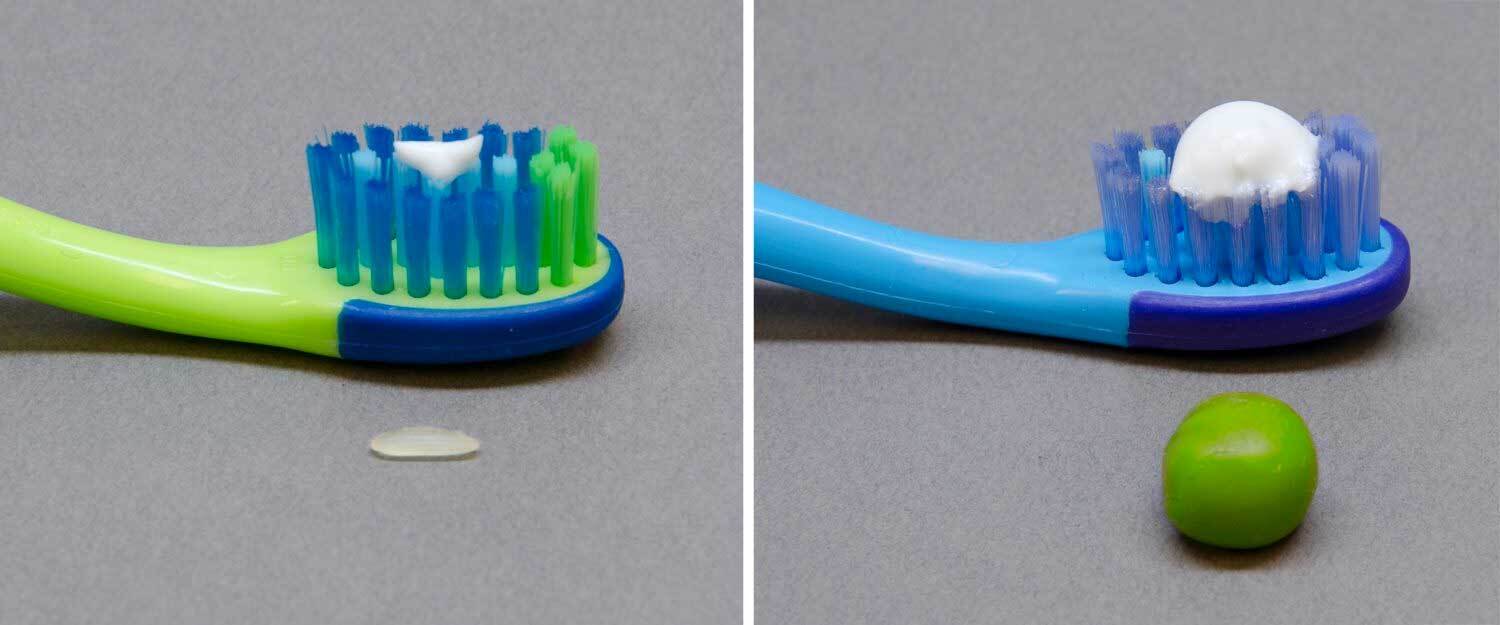First Visit
-
Q. When should my child first see a dentist?
“First visit by first birthday” sums it up. Your child should visit a pediatric dentist when the first tooth comes in, usually between 6 and 12 months of age. This visit will establish a dental home for your child. Early examination and preventive care will protect your child's smile now and in the future.
-
Q. Why so early? What dental problems could a baby have?
The most important reason is to begin a thorough prevention program. Dental problems can begin early. A big concern is Early Childhood Caries (formerly known as baby bottle tooth decay or nursing caries). Once a child's diet includes anything besides breast-milk, erupted teeth are at risk for decay. The earlier the dental visit, the better the chance of preventing dental problems. Children with healthy teeth chew food easily and smile with confidence. Start your child now on a lifetime of good dental habits.
-
Q. How can I prevent tooth decay from nursing or using a bottle?
At-will breast-feeding should be avoided after the first primary (baby) teeth begin to erupt and other sources of nutrition have been introduced. Children should not fall asleep with a bottle containing anything other than water. Drinking juice from a bottle should be avoided. Fruit juice should only be offered in a cup with meals or at snack time.
-
Q. When should bottle-feeding be stopped?
Children should be weaned from the bottle at 12-14 months of age.
-
Q. Should I worry about thumb and finger sucking?
Thumb sucking is perfectly normal for infants; many stop by age 2. Prolonged thumb sucking can create crooked teeth or bite problems. If the habit continues beyond age 3, a professional evaluation is recommended. Your pediatric dentist will be glad to suggest ways to address a prolonged thumb sucking habit.
-
Q. When should I start cleaning my baby's teeth?
The sooner the better! Starting at birth, clean your child's gums with a soft infant toothbrush or cloth and water. As soon as the teeth begin to appear, start brushing twice daily using fluoridated toothpaste and a soft, age-appropriate sized toothbrush. Use a “smear” of toothpaste to brush the teeth of a child less than 2 years of age. For the 2-5 year old, dispense a “pea-size” amount of toothpaste and perform or assist your child's tooth brushing. Remember that young children do not have the ability to brush their teeth effectively.
-
Q. Why so early? What dental problems could a baby have?

The most important reason is to begin a thorough prevention program. Dental problems can begin early. A big concern is Early Childhood Caries (formerly known as baby bottle tooth decay or nursing caries). Once a child’s diet includes anything besides breast-milk, erupted teeth are at risk for decay. The earlier the dental visit, the better the chance of preventing dental problems. Children with healthy teeth chew food easily and smile with confidence. Start your child now on a lifetime of good dental habits.
-
Q. Any advice on teething?
From six months to age 3, your child may have tender gums when teeth erupt. Many children like a clean teething ring, cool spoon or chilled rag.
Importance of Primary (Baby) Teeth
It is very important that primary teeth are kept in place until they are lost naturally. These teeth serve a number of critical functions.
Primary teeth:
- Maintain good nutrition by permitting your child to chew properly.
- Are involved in speech development.
- Help the permanent teeth by saving space for them. A healthy smile can help children feel good about the way they look to others.
Infants and Children
Getting an early start in regular dental care is an important step on the road to teaching your child healthy lifetime habits. We want to share with you the latest available methods for keeping your child healthy and safe.
The first dental visit should occur shortly after the first tooth erupts and no later than the child's first birthday. Beginning tooth and mouth examinations early may lead to detection of early stages of tooth decay that can be easily treated.
Adolescents
Adolescents have special needs. Appearance and self-image are very important to them. Decayed or poorly positioned teeth or jaws might make them more self-conscious. Teens also eat frequently, and unhealthy snack foods tend to become a major part of their regular diet. We provide a professional, sensitive and caring approach to restoring and guiding teeth, and teaching preventive dental health care through the teen's high school years. When necessary, we will provide information on sealants, oral piercing, wisdom teeth, missing teeth and tobacco use.
Young People with Special Needs
An integral part of our education is concerned with the medical and dental health of the special patient. People with significant medical, physical, or mental disabilities often present challenges to dentists. Our training allows us to address their special needs and provide the best care possible.
Team Approach to Total Health
Good oral health is an important part of total health. When helping children, we often work with pediatricians, other physicians and dental specialists. All young people are served best through this team approach. We, the pediatric dentists, are an important part of your child's health team.